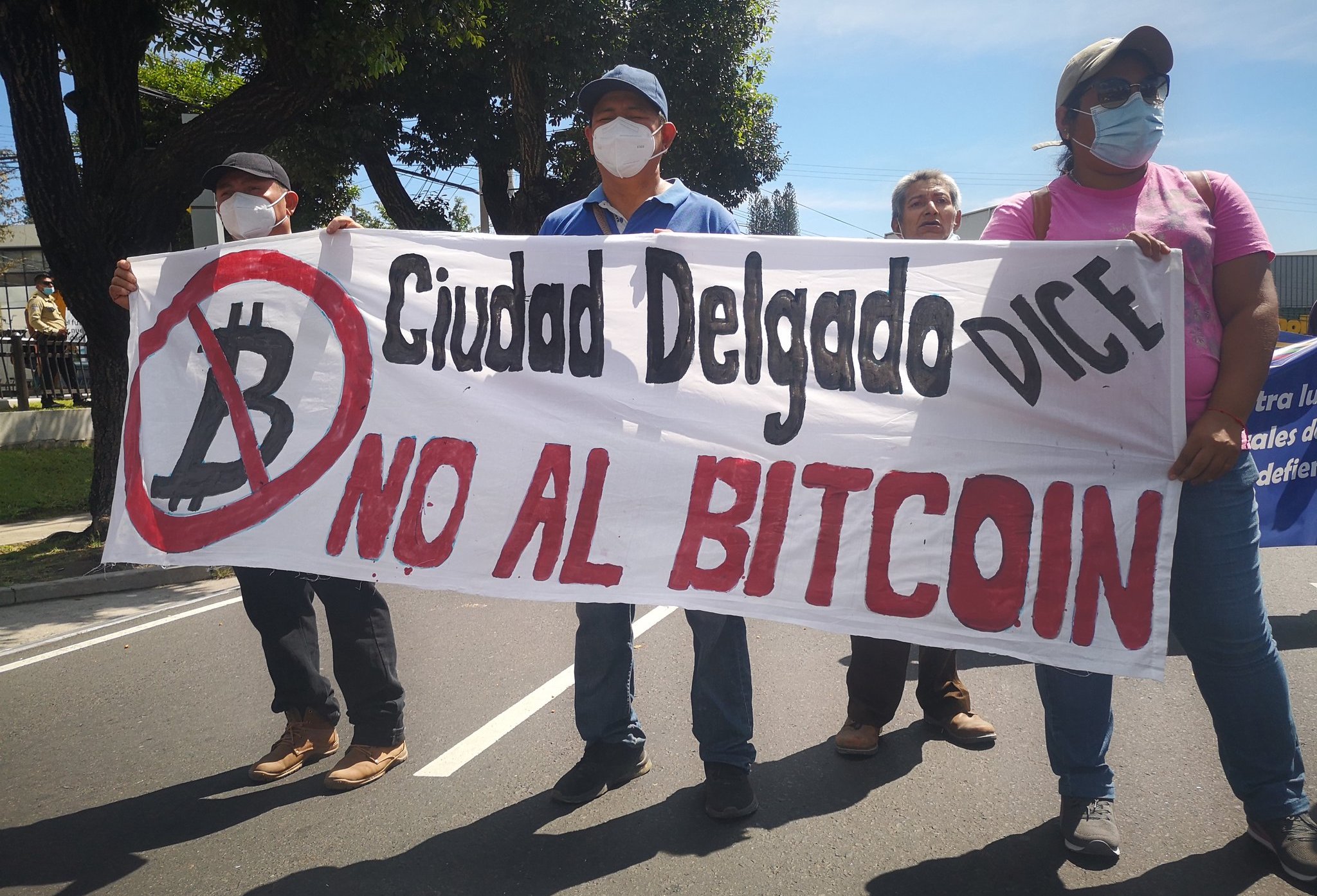
Protests have repeatedly erupted in El Salvador over the past week as the country became the first to make Bitcoin legal tender. The US dollar also remains official currency, but the law pushed through by President Nayib Bukele mandates that all vendors also accept Bitcoin. Small merchants and especially those in the informal sector complain of problems in trying to download the official phone app needed to use the currency. Protesters say the new law will deepen poverty by further excluding the already marginalized from the economy. They also assert that it will further enable corruption. “This is a currency that’s not going to work for pupusa vendors, bus drivers or shopkeepers,” one protester told Reuters. “This is a currency that’s ideal for big investors who want to speculate with their economic resources.”
The public-sector workers’ union AGEPYM has joined the protests, also opposing Bukele’s proposed pension reform. Mario Gómez, a digital analyst and prominent critic of the Bitcoin conversion, was arbitrarily detained during the protests, when the National Civil Police intercepted the vehicle he was driving in with his mother. Protesters accuse Bukele of attempting to establish a dictatorship. (The Conversation, El Faro, La Prensa Grafica, ElSavlador.com)
Opponents of the digital currency have also pointed to the vast amounts of energy needed to “mine” (sic) Bitcoins.
Photo via Twitter





Salvadorans declare independence from Bitcoin
Protesters in El Salvador took to the streets Sept. 15, bicentennial of the nation’s independence, to protest the adoption of Bitcoin as legal tender and recent moves by President Nayib Bukele to consolidate power. Several thousand people marched to the central plaza in San Salvador, brandishing signs reading “No to dictatorship” and “We were defrauded by Bitcoin.” The demonstrations were largely peaceful though one group smashed windows and set fire to a Bitcoin ATM kiosk installed last month ahead of the cryptocurrency’s rollout as legal tender. (Bloomberg)